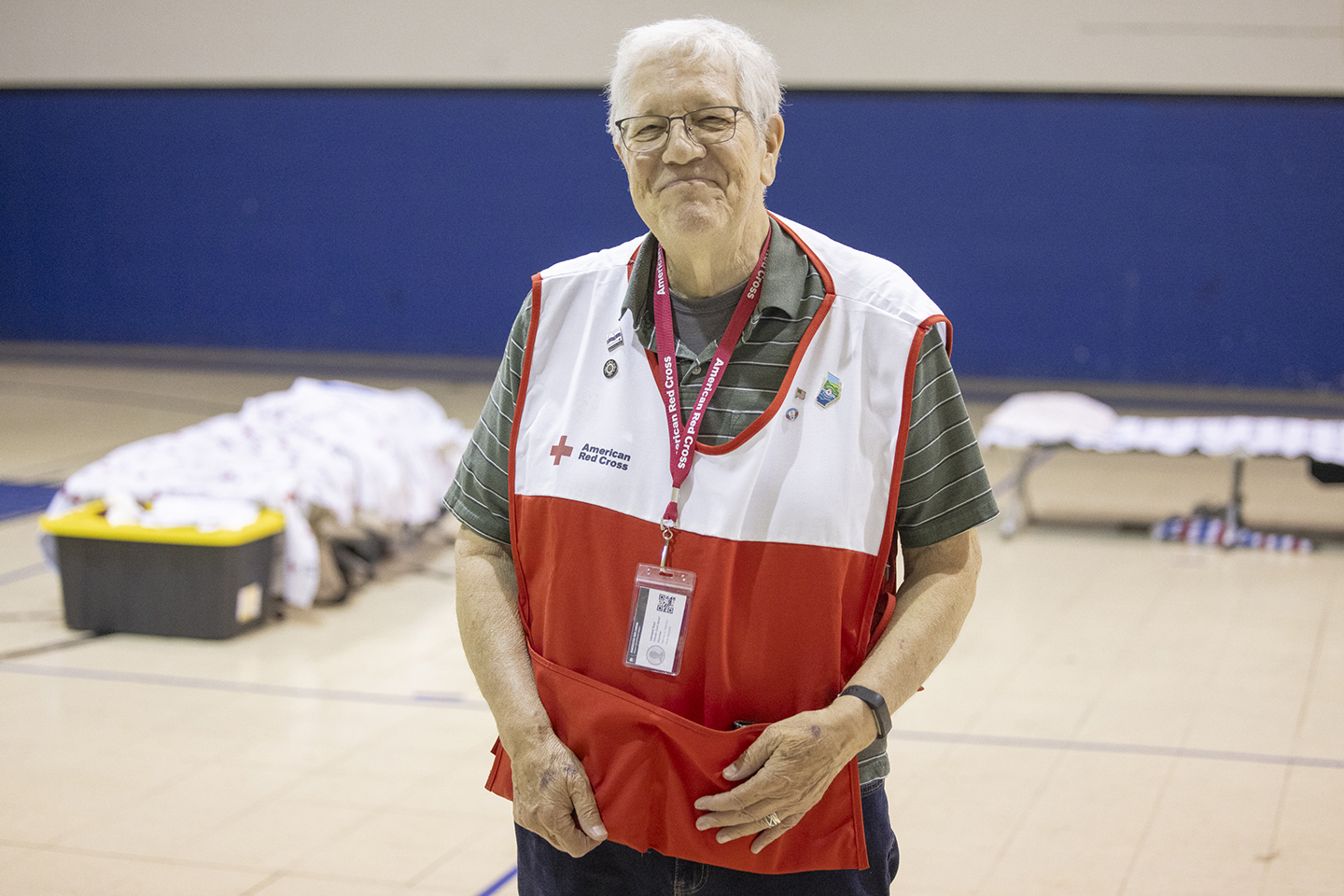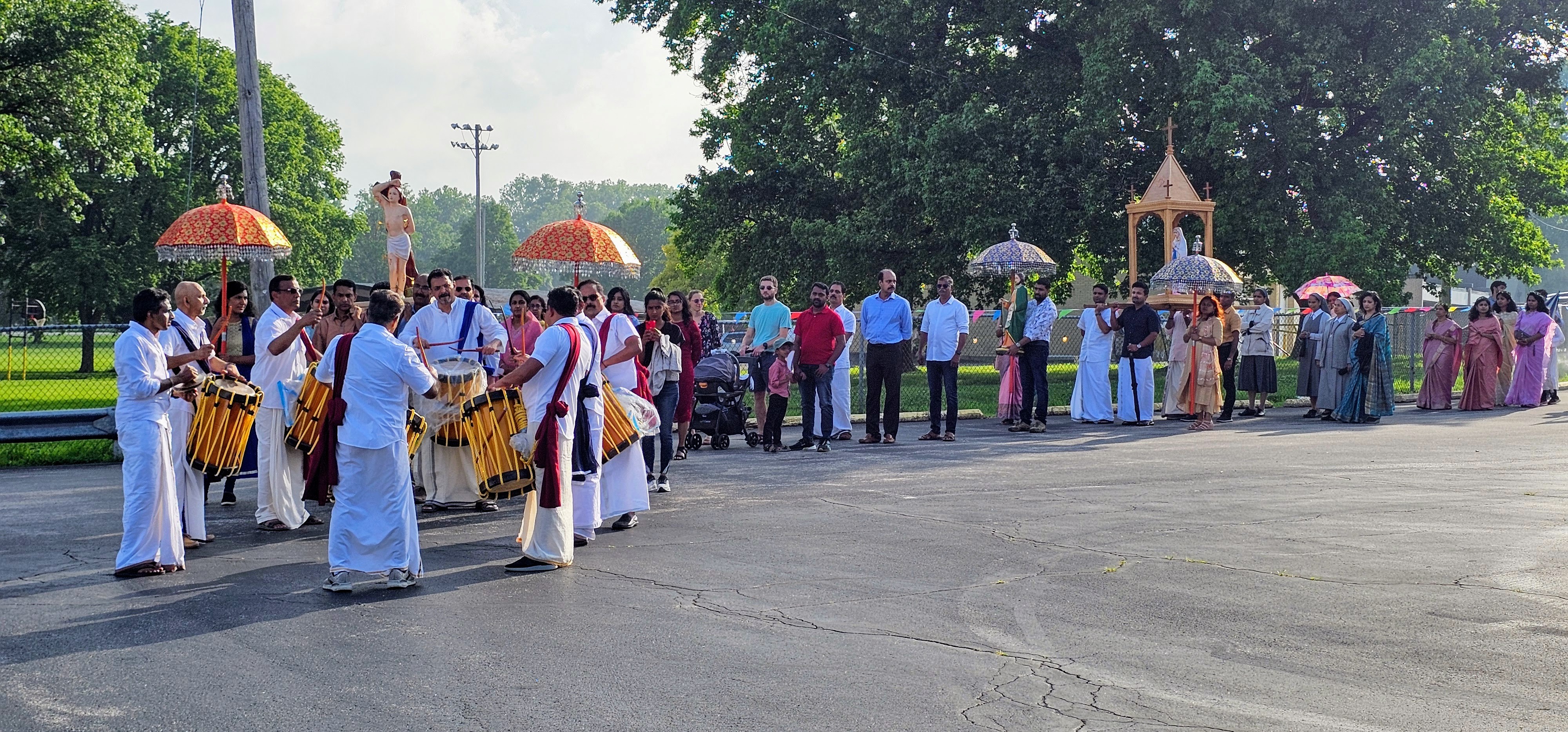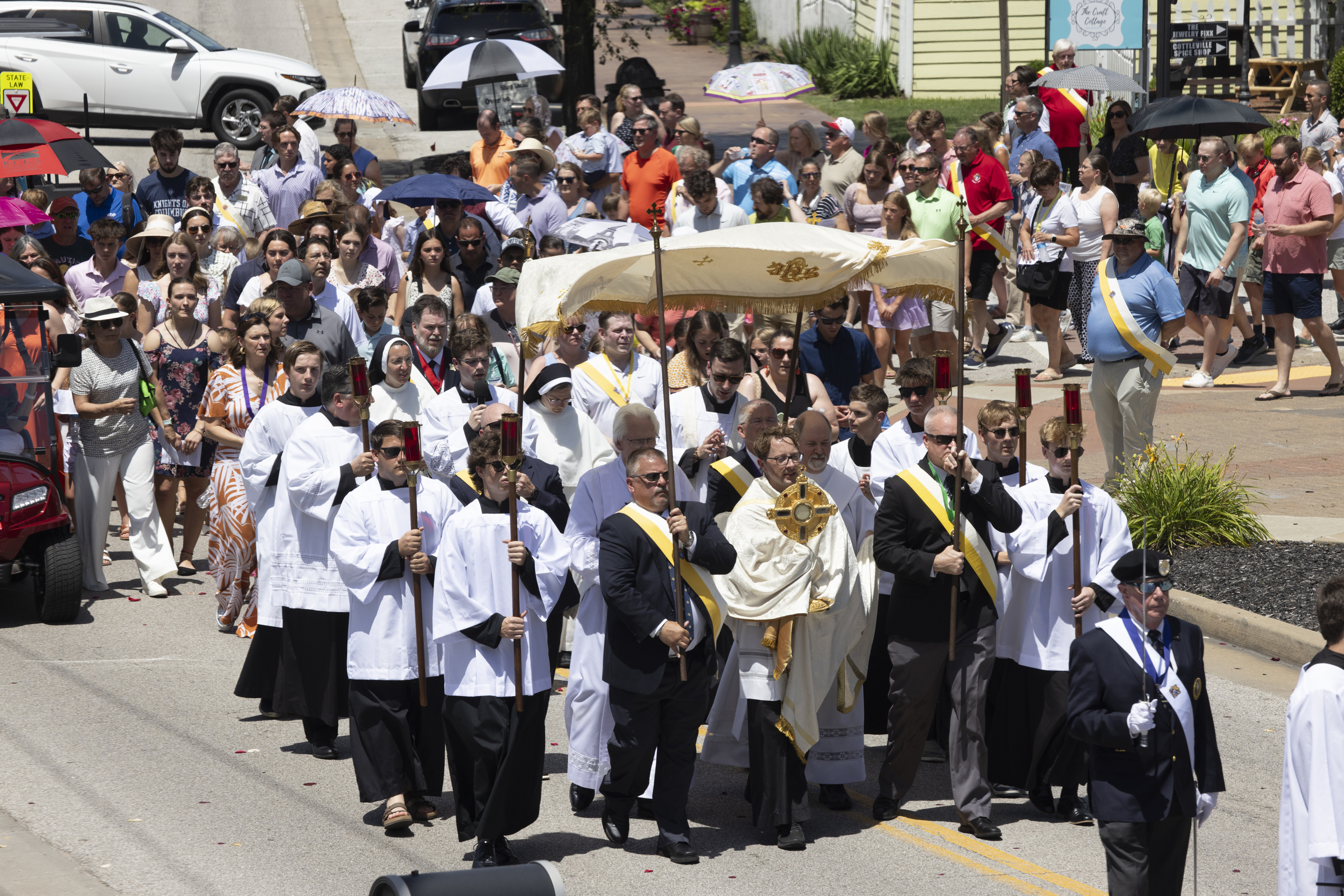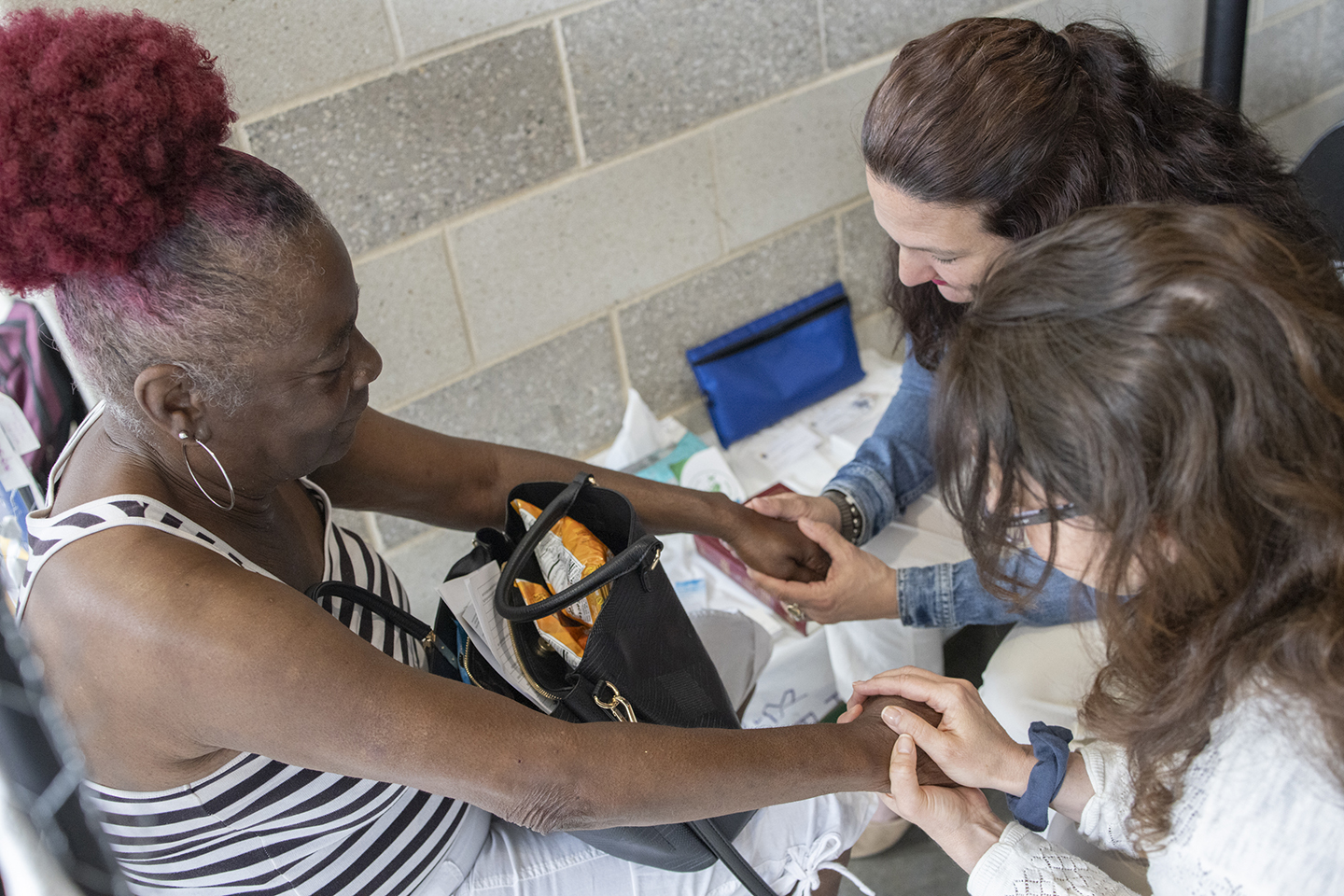Kidney recipient describes gift from St. Louis woman as a ‘true act of God’
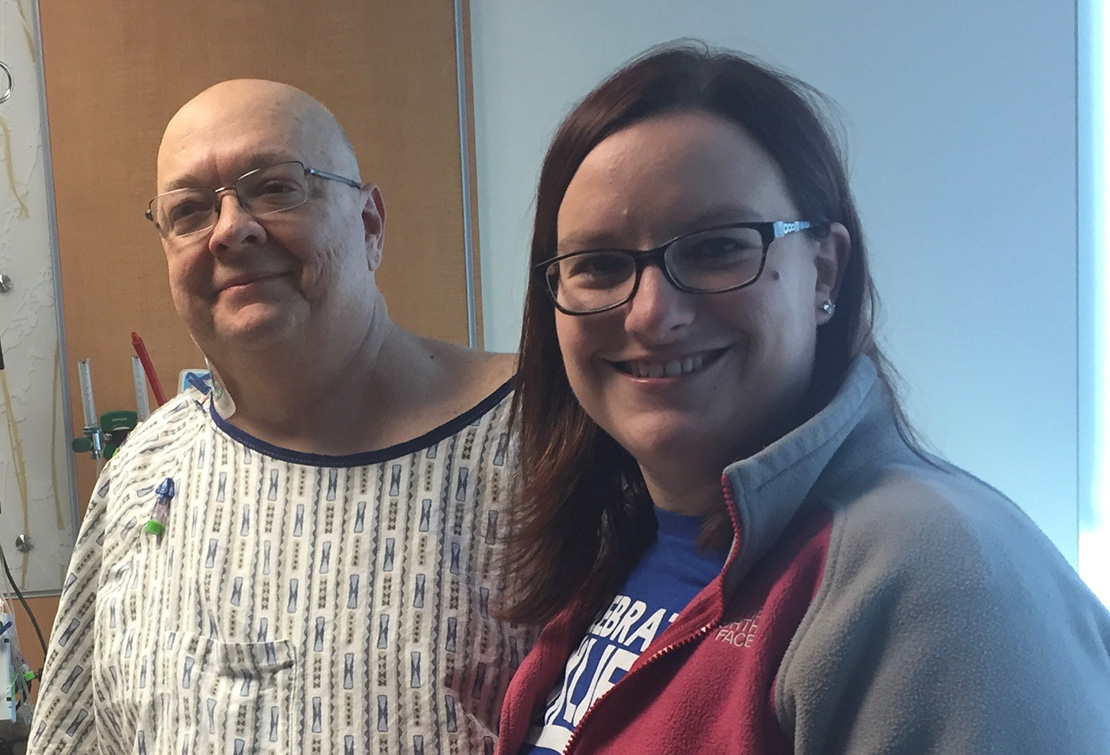
Twenty-seven-year-old Jane Kallal of St. Gabriel inspired by her father’s tissue donation after death
Many people use their workplace intranet to sell extra baseball tickets, candy for a child’s school fundraiser or to promote upcoming events. But Pete Richards decided to give it a shot when he posted to his work’s online bulletin board in search of a kidney donor.
Richards of Northern Virginia got a few responses, but it was Jane Kallal, a co-worker halfway across the country in St. Louis whom he’d never met, who ended up being a match. Kallal, a member of St. Gabriel the Archangel Parish in south St. Louis, traveled to Virginia in December to undergo the successful transplant surgery at Inova Fairfax Hospital in Annandale.
The transplanted kidney has given Richards a “new lease on life,” the 59-year-old husband and father said in a phone interview. “Jane’s act was a true act from God. I can’t explain it any other way.”
Kallal, 27, was inspired to become an organ donor after her father died in a car accident in 2004. He had previously communicated his desire to be an organ/tissue donor, and after his death, his corneas were donated to an eye bank.
The Kallal family became involved in supporting Mid-America Transplant, a St. Louis-based organization that facilitates organ and tissue donation. “I had always said, if someone ever needed a kidney, I would give them one,” Jane Kallal said. “The older I got, I thought this is something I really could do if someone asked this of me.”
In May, Kallal saw Richards’ request among the employee announcements. She tucked away the idea for about a month. She researched and prayed about it. She thought, “I’m not married. I don’t have kids. Would I still be able to have kids in the future?” She asked, “God, is this something you really want me to pursue?”
Kallal called Richards and left him a message saying she was willing to be tested as a potential match. “He was very thankful for this gesture of being open to testing,” she recalled.
Richards had known for several years that his kidneys were deteriorating, based on lab work he’d had completed. His doctor told him it was a matter of time before he’d need dialysis. Ironically, on a work trip to St. Louis in February, Richards was feeling sluggish and found himself having a difficult time keeping up with a colleague. When he returned to Virginia, he returned to his doctor, who sent him to the hospital. His kidneys were in failure, and dialysis was begun.
In desperation, Richards posted a message to his work’s bulletin board asking for donations. He knew it was a whim request, but at that point he’d been on dialysis for several months. He also didn’t have any eligible living relatives, so there wasn’t a chance of having a donor within the family.
Richards described Kallal as “the embodiment of being a Christian to me. She’s very devout in her beliefs and her faith. Her whole family is really amazing. They really live their beliefs.” He said the experience has brought himself closer to God, too. He was raised Lutheran and later became Presbyterian. Since the transplant, he’s found a new Presbyterian church, and he’s more active in his faith. He give all of the credit to Kallal.
“She brought me closer to God and showed me a miracle,” he said. “You don’t see many miracles in your life, and this was a real miracle that has come to me.”
Church teaching on organ donations
Before she agreed to be tested as a potential donor, Kallal researched what the Catholic Church teaches about organ donation. She spoke to her brother, Brother Paul Kallal, who is a seminarian with the Oblates of the Virgin Mary in Boston, and another priest friend for advice.
The U.S. bishops’ Ethical and Religious Directives for Catholic Health Care Services note that organ transplantation from a living donor is morally permissible as long as the donation does not sacrifice or seriously impair essential bodily function, and the anticipated benefit to the recipient is proportionate to the harm done to the donor. The freedom of the prospective donor must be respected, and economic advantages should not accrue to the donor.
Kidney donations fall well within the realm, since donors’ health is considered unimpaired because they have a second kidney that performs the same functions.
The ethical directives also ask Catholic health care institutions to encourage and provide the means whereby those who wish to do so may arrange for the donation of their organs and bodily tissue. In the case of nonliving donors, “such organs should not be removed until it has been medically determined that the patient has died,” the directives note.
St. John Paul II has linked the act of donating organs as a “genuine act of love,” through the great commandment that Jesus gives to “love one other as I have loved you.”
Organ donation can become more complicated when the donor is deceased. Father Peter Fonseca, who has an expertise in bioethical issues and health care ethics, noted that nothing should be done to hastily cause the person’s death. Generally, the Church permits organ donation if the person has experienced whole brain death, meaning the total cessation of all brain function; or cardiopulmonary death, meaning the heart has been stopped entirely and cannot be reversed.
The Catechism of the Catholic Church (see related) notes that the functional integrity of the body must not be destroyed via the process of organ donation. “I can give a kidney because I have two kidneys, thus kidney function still continues in my body if I’m alive,” said Father Fonseca.
From a spiritual standpoint, organ donation is an act of sacrifice, modeled after Christ’s sacrifice on the cross, said Father Fonseca. “When you donate an organ you’re not just giving a part of yourself, we’re not just pieces,” he said. “You’re actually giving your life for another life. We’re giving ourselves to another.”
>> Catholic Church on organ donation
Organ transplants are fairly common, but the need for donors remains high.
The Catechism of the Catholic Church notes that “organ transplants are in conformity with the moral law if the physical and psychological dangers and risks to the donor are proportionate to the good sought for the recipient. Organ donation after death is a noble and meritorious act and is to be encouraged as a expression of generous solidarity. It is not morally acceptable if the donor or his proxy has not given explicit consent. Moreover, it is not morally admissible to bring about the disabling mutilation or death of a human being, even in order to delay the death of other persons” (CCC #2296).
St. John Paul II also affirmed that organ donation is a beautiful act that nutures a culture of life as long as it is “performed in an ethically acceptable manner, with a view to offering a chance of health and even of life itself to the sick who sometimes have no other hope” (“Evangelium Vitae,” No. 86).
In an address in 2000 before the International Congress of the Transplantation Society, St. John Paul II called organ donation a “genuine act of love. It is not just a matter of giving away something that belongs to us but of giving something of ourselves, for ‘by virtue of its substantial union with a spiritual soul, the human body cannot be considered as a mere complex of tissues, organs and functions … rather it is a constitutive part of the person who manifests and expresses himself through it’” (“Donum Vitae,” No. 3).
>> Organ donation
More than 113,000 people are currently on a national transplant waiting list as of January 2019;
More than 36,000 transplants were performed in 2018;
Twenty people die each day waiting for a transplant;
Ninety-five percent of U.S. adults support organ donation, but only 58 percent are signed up as donors;
Every 10 minutes, another person is added to the waiting list.
Source: U.S. Department of Health and Human Services, via organdonor.gov
To learn more about becoming an organ donor, visit organdonor.gov, or Mid-America Transplant www.midamericatransplant.org.
Many people use their workplace intranet to sell extra baseball tickets, candy for a child’s school fundraiser or to promote upcoming events. But Pete Richards decided to give it a … Kidney recipient describes gift from St. Louis woman as a ‘true act of God’
Subscribe to Read All St. Louis Review Stories
All readers receive 5 stories to read free per month. After that, readers will need to be logged in.
If you are currently receive the St. Louis Review at your home or office, please send your name and address (and subscriber id if you know it) to subscriptions@stlouisreview.com to get your login information.
If you are not currently a subscriber to the St. Louis Review, please contact subscriptions@stlouisreview.com for information on how to subscribe.

